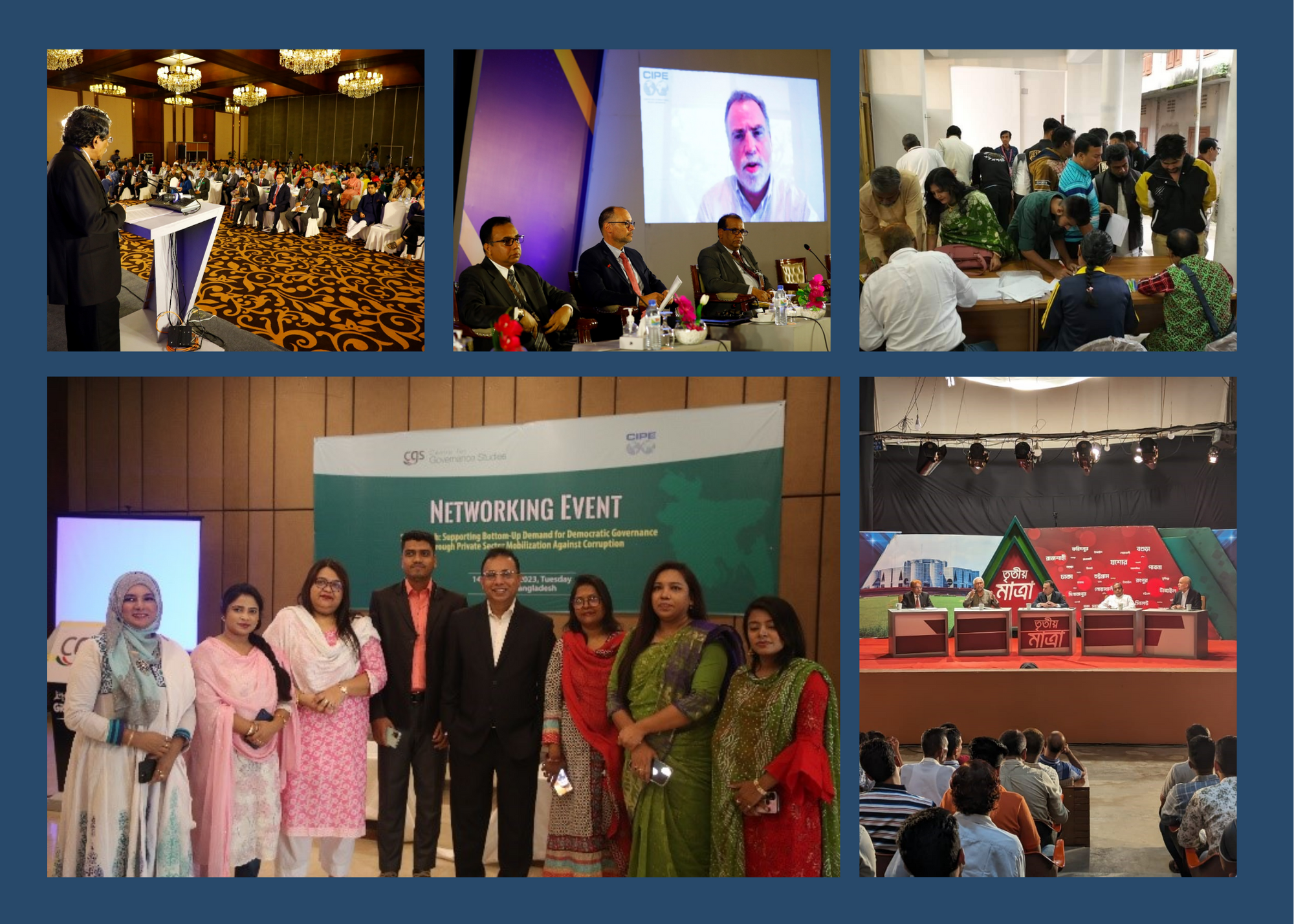Bangladesh has made significant economic progress in recent decades, yet systemic corruption continues to impede equitable growth and democratic governance. Key Informant Interviews (KIIs), surveys, and assessments on the effects of corruption on households and SMEs have shown that corruption takes a major toll on the economy, with Small and Medium-sized Enterprises (SMEs) among the hardest hit.
It is crucial for Bangladesh to make continuous efforts in combating corruption and establishing responsive, participatory governance. This is especially important in the country’s efforts to strengthen its institutions of democratic governance and promote growth of the private sector. CIPE’s programs are designed to contribute to these objectives by amplifying the voices of the private sector, particularly at the sub-national levels, strengthening civil society, and advocating for transparency and accountability at all levels.
SMEs make up over 90% of businesses in Bangladesh and are seeking greater inclusion in decision-making processes that affect the business operating environment, particularly outside Dhaka. Responding to this demand, CIPE has partnered with the Center for Governance Studies (CGS), a Dhaka-based think tank to support a nationwide, private sector-led initiative. Grounded in consultations with SMEs across Bangladesh, the multi-phase endeavor aims to develop constructive policy recommendations through dialogue and evidence-based advocacy.

Featured
Additional Resources
- A Continuing Series: Perceptions of Corruption Before and After the Pandemic — Survey of SMEs in Bangladesh
- Small and Medium Enterprises in Bangladesh: An Assessment Report
- Perceptions of Corruption Before and After the Pandemic — A Survey of Households in Bangladesh
- CIPE Leaders Discuss Defending Against Authoritarianism on Bangladesh Program
- Geopolitics of the Pandemic: Bangladesh Perspective
- Bangladesh’s Economic ‘Recovery’ in the COVID-19 Era: A Paradox, a Puzzle or a Mirage
- Bangladesh In the Shadow of COVID-19
- Catering to the Vulnerable: Need for Overhauling of Social Security in Bangladesh
- Restarting the Economy: A Seven-Point Framework
- Diversification – the Pathway for Economic Recovery
- Democracy That Delivers #205: Mitigating the COVID19 Crisis in Bangladesh with Selima Ahmad
- Democracy That Delivers #203: An Analysis of COVID-19 and Bangladesh
- Assessing COVID-19 Control Measures and Prospects for Socio-Economic Recovery in Pakistan and Bangladesh
- CIPE Celebrates International Women’s Day and Women’s History Month
